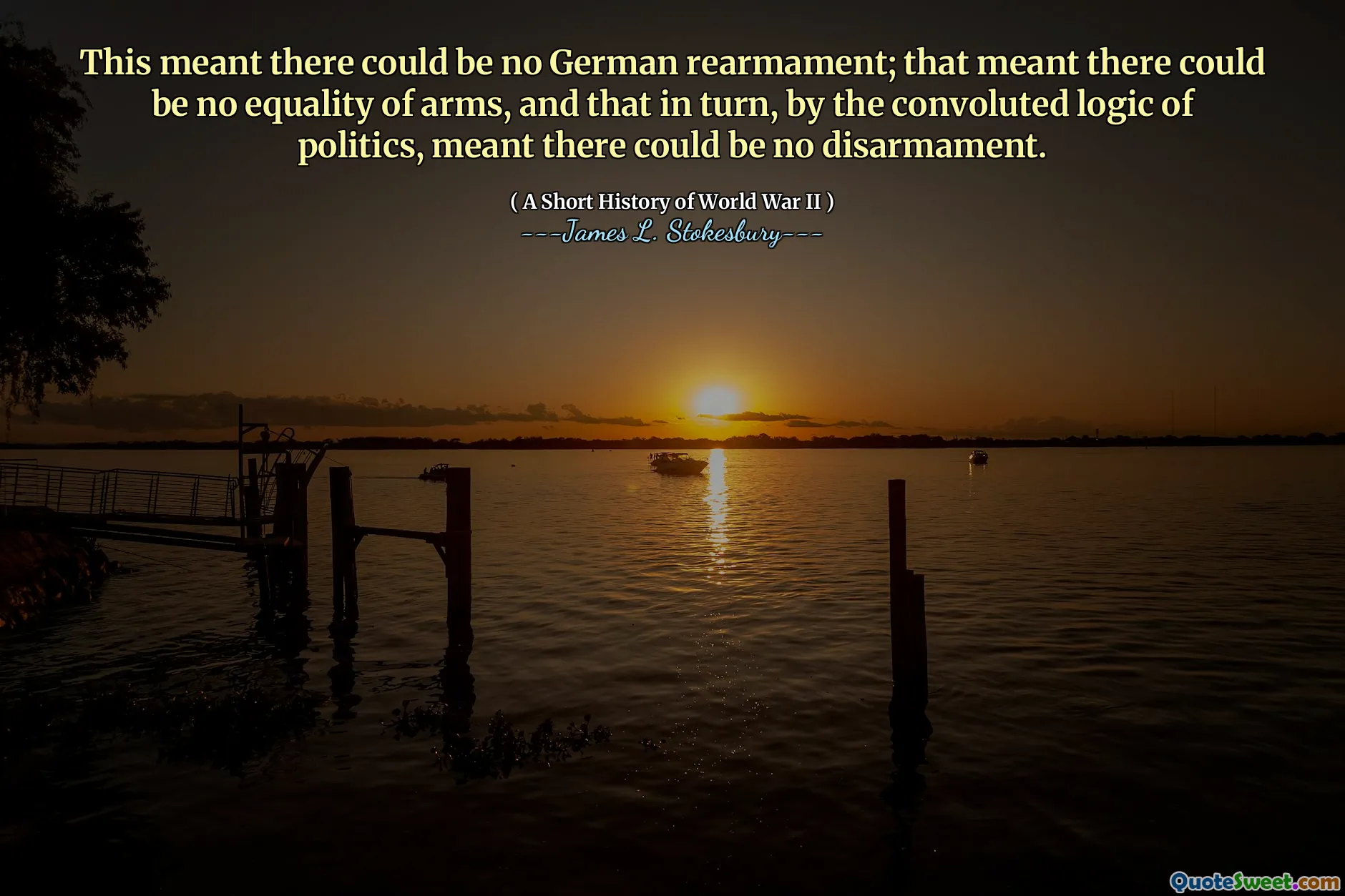
This meant there could be no German rearmament; that meant there could be no equality of arms, and that in turn, by the convoluted logic of politics, meant there could be no disarmament.
In "A Short History of World War II," James L. Stokesbury discusses the implications of German rearmament restrictions after World War I. He notes that the prohibition against Germany rebuilding its military not only prevented it from having equal military capabilities but also complicated the broader disarmament efforts across Europe. This paradox created a cycle where the lack of military parity hindered peace initiatives, illustrating the intricate relationship between military power and diplomatic negotiations.
The situation highlighted the complexities of post-war politics, where one nation's limitations could affect international relations. The inability of Germany to rearm stripped it of equality in terms of military strength, which, paradoxically, undermined efforts to disarm other nations as they remained apprehensive about their security. Stokesbury's analysis emphasizes how political dynamics often create counterproductive outcomes, demonstrating the challenges faced in achieving lasting peace and stability in a troubled historical context.











